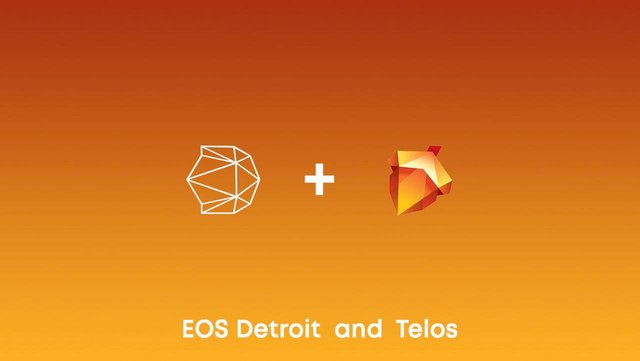
Our Mission
EOS Detroit’s mission is to unlock the potential of EOSIO technology for the benefit of communities worldwide. Today we expand the reach of that potential and officially announce our partnership with Telos.
What is Telos?
Like EOS, Telos is based upon the EOSIO software developed by Block.One and as such it is a “sister chain” to EOS Main net. Telos is being launched by a consortium of EOS block producers and community volunteers comprised of software, marketing, legal, and other business professionals. As a distinct implementation of the EOSIO software, Telos is free to experiment with novel approaches to voting dynamics, alternate models of block producer pay, distribution, arbitration, and more.
How will the launch of Telos benefit the EOS main net?
Telos is setting out to solve many of the key challenges which confront the EOS main net. The EOS main net is already launched and any changes must be made ‘in flight’ once a working referendum system is in place, while Telos has the benefit of arriving more fully formed with knowledge gleaned from the EOS main net experience. Telos is thus suited to more rapidly demonstrate a number of alternate solutions, which may then be adopted or rejected by the main net.
“Ultimately, Telos may provide a testbed of innovative solutions that the EOS main net may adopt. For now, Telos aims to be a cost-effective, highly reliable network that users can join for free and developers can afford to deploy their DApps on.” –Source
What are some key features promised by Telos?
- A constitution that defines penalties for block producers who breach the constitution and which establishes clear enforcement mechanisms.
- Equitable block producer pay structure. Pay is separated into active and standby tiers whose members receive equal rewards. Standbys earn half of what an active block producer makes.
- Block producer voting is “inverse weighted” meaning that if you only vote for 1 or 2 block producers your votes have less weight than if you vote for 30.
- Worker proposal system, arbitration forum, and referendum contract from day 1.
- Smart contracts to remove active block producers who fail to produce blocks and to rotate in standbys to test readiness and capabilities.
- Testnet as a staging environment to ensure new software releases work as intended.
- Economic decentralization: An adjusted token distribution based upon the EOS genesis snapshot which limits the initial holdings of any account to 40,000 TLOS, resulting in a more horizontal token ownership. distribution.
- Rotating in standby BPs to test production readiness
What does this mean for EOS Detroit?
EOS Detroit will be able to use the lessons learned from participating in launching the Telos chain to inform the work we do every day in support of EOS Main net and the broader EOSIO ecosystem. Our work on unique implementations of EOSIO software allows EOS Detroit the opportunity to continue to honing our proficiency as a first-rate block producer.
When is Telos Launching, and when Airdrop?
The first go/no-go decision date for the Telos launch will be on Sept 28, 2018 16:00 UTC. You can see the progress here as the Telos team checks the pre-launch to-do items off the list. Once the Telos network is up and operational, EOS Genesis account holders will be able to use their ERC-20 EOS keys to claim TLOS tokens.
Security Tip: Although we trust the open source Telos code, as a best practice you should change your EOS main net account keys before importing the EOS genesis keys into any other EOSIO forks.
Want to Learn More?
To learn more about Telos, you can visit their website or their telegram group at The Telos Foundation. As appropriate, we will be providing periodic updates on the Telos network.
Connect With EOS Detroit

Not outright competing then? Are you going to share resources between EOS and Telos?
Downvoting a post can decrease pending rewards and make it less visible. Common reasons:
Submit